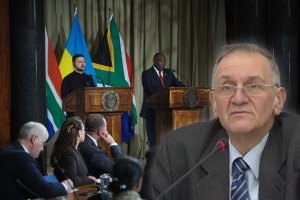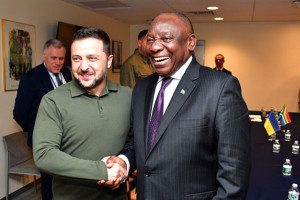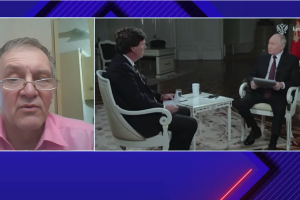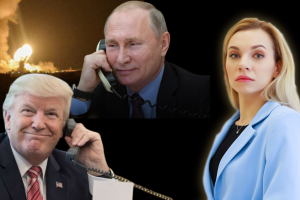The likely election of a pro-russian candidate as a president of Mmoldova: what are the risks of a geopolitical reversal in a country that neighbors with Uukraine?
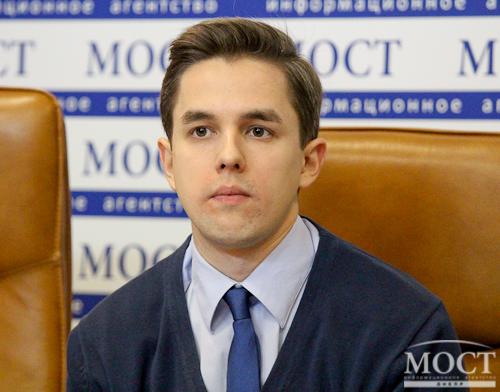
Ruslan Kermach,
Political Analyst (DIF)
Over the week of November 13, 2016 in the Republic of Moldova neighboring with Ukraine a second round of the nationwide presidential elections[1] will be held in which the leader of the pro-Russian Socialist Party Ihor Dodon has a very high probability of winning. Just as sociologists prognosticated earlier, Dodon gained a solid victory based on the results of the first round of the elections by overtaking his main rival of the pro-European forces Maia Sandu by nearly 10%. The favorite of the current election race is already known with his scandalous statements regarding the territorial belonging of Crimea. Earlier, Dodon also stated his intention of severing the Association Agreement and free trade between the EU and the Republic of Moldova.
Ukraine perceives the prospects of a politician with openly pro-Russian rhetoric being elected the president of neighboring Moldova with totally justified caution. The fears of the possible radical changes in the foreign policy course of the country neighboring Ukraine and its steady integration into the Eurasian Economic Union (EAEU) after the election of the new president are totally justified. However, in itself the presidency of the pro-Russian leader of the Socialist Party in Moldova Ihor Dodon does not yet mean that Moldova will abruptly spread its wings in the direction of Moscow, though certain risks of the development of such a scenario after the holding of routine or possible snap parliamentary elections in Moldova remain.
First of all, it is worth noting that the constitutional powers of the head of state in the political institutional architecture of the Republic of Moldova are fairly limited. For approval of the peculiar foreign policy decisions, the ratification or denunciation of international agreements the president must garner the support of the parliamentary majority. Although Dodon has his own faction in the current convocation of the parliament, he does not control the political majority on which he could lean in order to realize his political course. Be that as it may, the potential possibility of changes in the political alignment of forces to his benefit will open starting in the autumn of 2018 when the routine parliamentary elections are planned to be held in Moldova.
In addition, it cannot be ruled out that if elected as the President of Moldova the current leader of the Socialist Party Dodon will try to topple the currently frail and quite unstable parliamentary majority from within in order to gain the possibility to announce for snap elections to the national parliament at the end of three-month legislative body incapacity.
Having the highest political rating today, it is highly possible that Socialist Dodon could gain the majority of seats in the newly formed parliament for his political force. In such a scenario of the course of events the probability of a strategic turn of Moldova towards Moscow is much more likely, albeit is not guaranteed.
So, it also must be taken into account that if elected to the presidential office, a pro-Russian politician Dodon will get in an already formed political, socio-economic and diplomatic context that had took its shape in the previous years of realization of European integration vector by Chisinau. In particular, this concerns the introduction of a visa-free regime between Moldova and the EU, which has already successfully functioned for more than two years and tight-knit trade and economic ties with countries of the European Union. Besides that, the Republic of Moldova is today the leader among countries of the Eastern Partnership in volumes of receiving per capita financial aid from Brussels.
It would be extremely heady in such conditions to try to ruin already formed principles and mechanisms of cooperation of Moldova with countries of the West. The same applies to bilateral dialog with Kyiv as not only an important trade economic partner for Moldova, but also one of the key participants of the negotiating process in the context of regulating the highly sensitive Transnistrian issue.
In closing, notwithstanding the current pre-election rhetoric, Ihor Dodon in general makes the impression as a sufficiently and pragmatic politician who is capable of effectively maintain his balance on the political skies without falling into dangerous for the interests of Chisinau extremes. In connection with this it should not be ruled out that the logic of the behavior and political judgments of the leader of the Party of Socialists in Moldova after the end of the election campaign could undergo certain changes in the balance and reasoning to which those objective political and economic realities the Republic of Moldova is currently in will also draw it.
[1] Presidential elections taking place this year in the Republic of Moldova are the first since 1996 direct (nationwide) election of the head of state. Earlier, Moldovan President was elected by the national parliament. The transition to the direct presidential elections took place after the decision taken by the Constitutional Court of Moldova, which declared on March 4, 2016 the amendment to the Constitution of Moldova (introducing the procedure of electing the president by parliament) unconstitutional.





